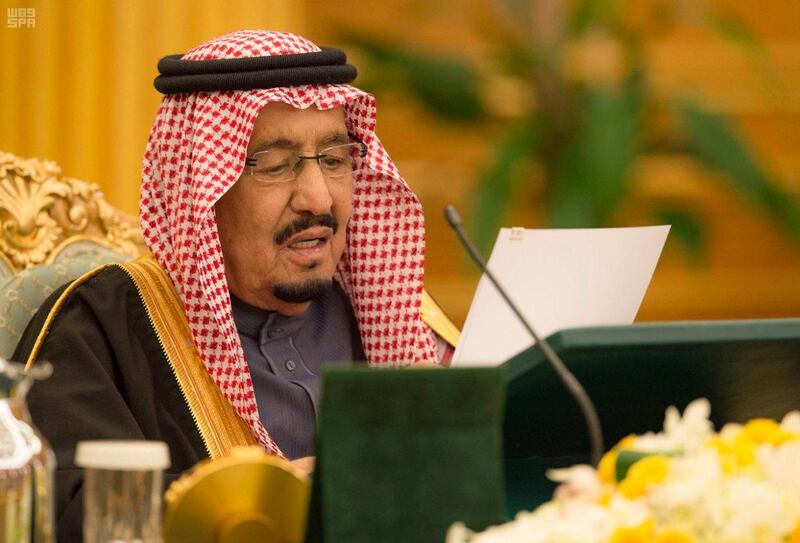Saudi Arabia expects its economy to rebound in 2018, a crucial year for crown prince Mohammed bin Salman’s blueprint for the post-oil era, as authorities ease an austerity drive that hurt growth.
The non-oil economy, the engine of job creation in the kingdom, is expected to grow “north of 3 per cent,” the finance minister Mohammed Al Jadaan said in Riyadh on Tuesday. That is twice the 2017 rate.
After two years of austerity, Saudi officials rolled out plans that seek to balance the need to rebuild state coffers while avoiding crippling private businesses. An expanding economy could make it easier to advance key elements in the prince’s long-term plan in 2018, including selling a stake in state-run oil giant Aramco to help create the world’s largest sovereign wealth fund.
The government plans to raise total spending to 1.1 trillion Saudi riyals (Dh1.07tn) from 926 billion riyals in 2017. The increase will help counter revenue-boosting measures, such as the introduction of value-added taxation and a levy paid by companies on expat workers. Overall growth is expected to rebound to 2.7 per cent after lower oil prices drove a 0.5 per cent contraction in 2017.
Non-oil revenue is expected to rise to 291bn riyals from 256bn riyals, with total receipts up 12.5 per cent to 783bn riyals. The government expects the budget deficit to narrow to about 7.3 per cent of gross domestic product from almost 9 percent this year.
The kingdom “found it appropriate to move to a more optimistic scenario” in its fiscal planning, the economy minister Mohammad Al Tuwaijri told a news conference in Riyadh. “We’re very satisfied with what happened in 2017, and we’ll continue on this journey.”
____________
Read more:
Saudi economy year in review: Credit Suisse bullish on Tadawul upgrade potential
UAE and Saudi Arabia work on cross-border digital currency plan
____________
The economy contracted 0.5 per cent this year after the kingdom led efforts by Opec and non-Opec members to cut crude production to boost prices, and austerity measures weighed on non-oil industries.
“The Saudi budget marks a break with the earlier strategy of substantial deficit reduction. This is sensible and will help the economy grow somewhat faster next year,” said Ziad Daoud, a Dubai-based Bloomberg economist. “But unless oil prices keep rising, further consolidation will eventually be needed to put the public finances on a sustainable footing.”
While Brent crude prices have increased more than 10 per cent this year to $63.83 per barrel, they are still significantly below their 2014 peak levels. To balance its budget, Saudi Arabia needs an oil price of $87 per barrel next year, according to Bloomberg Economics.
The government earmarked 210bn riyals for defence spending in 2018, less than last year but the largest component in the new budget - surpassing education.
The government, chaired by King Salman, approved the budget shortly after Saudi forces said they intercepted a ballistic missile fired by pro-Iranian Yemeni rebels at the main royal palace, a sign of Saudi Arabia’s growing entanglement in regional conflicts as Prince Mohammed seeks to curb rising Iranian influence in the Middle East.
Inflation is expected to reach 5.7 per cent, from a negative rate at the end of 2017 and the government expects to spend 32bn riyals in 2018 on a cash-transfer programme designed to protect middle- and lower-income Saudi families from planned increase in fuel and electricity prices
Last week, the government announced a 72bn-riyal stimulus package. Officials have indicated that they will raise domestic fuel prices at a slower pace than previously targeted. The money will be spent over three years, the finance minister said on Tuesday.






